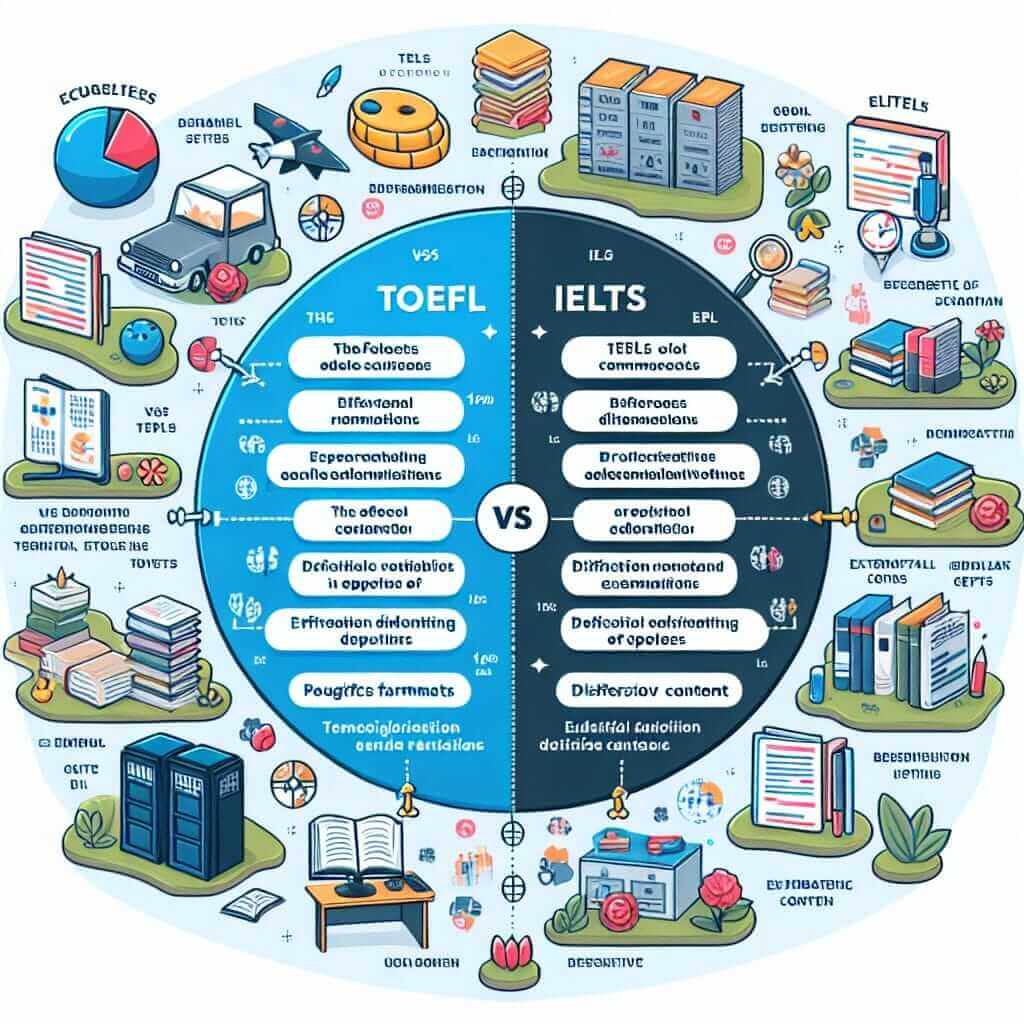For those embarking on the journey of international study or work, the choice between TOEFL and IELTS can be a significant one. Both exams are widely recognized English proficiency tests, but their format, scoring, and overall experience differ, leading many to wonder: which is easier, TOEFL or IELTS?
As an IELTS instructor with over two decades of experience, I’m here to shed light on this common query. The truth is, there’s no one-size-fits-all answer. The “easier” test depends on your individual strengths, learning style, and personal preferences.
Understanding the Core Differences
Before we delve into comparisons, it’s crucial to understand what each test assesses and how:
TOEFL (Test of English as a Foreign Language):
- Format: Entirely computer-based, focusing on North American English.
- Sections: Reading, Listening, Speaking (recorded responses), Writing (typed).
- Scoring: Each section receives a score out of 30, totaling to a maximum score of 120.
- Focus: Academic English skills needed for university-level studies.
IELTS (International English Language Testing System):
- Format: Offers both paper-based and computer-delivered options, encompassing a wider range of English accents.
- Sections: Reading, Listening, Speaking (face-to-face interview), Writing.
- Scoring: Each section is graded on a band scale of 0-9, with an overall band score calculated as an average.
- Focus: Assesses English language proficiency for a broader range of purposes, including study, work, and migration.

Dissecting the “Easier” Debate
Now, let’s address the key aspects influencing perceived difficulty:
1. Test Format and Delivery:
- Computer-based vs. Paper-based: Some find the TOEFL’s computer-based format less intimidating, while others prefer the familiarity of pen and paper offered by IELTS.
- Speaking Test: IELTS’s face-to-face Speaking test can feel more natural for some, while others might find the TOEFL’s recorded format less pressure-inducing.
2. English Accent Familiarity:
- North American vs. Varied Accents: Individuals accustomed to North American English may find TOEFL listening tasks easier. However, IELTS’s incorporation of various English accents can be advantageous for those exposed to diverse English dialects.
3. Content and Task Types:
- Academic Focus vs. Broader Scope: TOEFL heavily emphasizes academic English, making it potentially more challenging for those less familiar with academic jargon. IELTS covers a broader range of contexts, which might suit learners with diverse exposure to English.
Example: Navigating the Speaking Section
Let’s illustrate with the Speaking section, a common point of anxiety:
- TOEFL: Requires speaking into a microphone, responding to prompts within a time limit. This can be challenging for those who thrive on real-time interaction.
- IELTS: Involves a conversation with a human examiner, allowing for clarification and a more natural flow of communication. However, some might find the direct interaction more nerve-wracking.
Tips for Choosing the Right Test
So, which one should you choose? Consider these factors:
- Personal Learning Style: Reflect on your strengths and weaknesses. Are you comfortable with computers, or do you prefer pen and paper? Do you thrive under pressure, or do you prefer personal interaction?
- Future Goals: Determine if your target institutions or organizations have a preference. Research their accepted test scores and required band levels.
- Practice and Familiarization: Take practice tests for both TOEFL and IELTS to gauge your comfort level and identify areas needing improvement.
Conclusion: The Power of Personalized Preparation
Ultimately, the “easier” test is subjective. Instead of searching for an absolute answer, focus on understanding your learning style, aligning your choice with your goals, and dedicating ample time for focused preparation. Remember, success in either exam stems from dedicated effort and a strategic approach to improving your English proficiency.